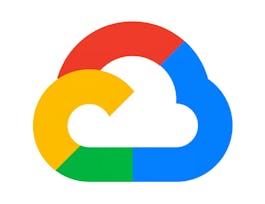Manipulating big data distributed over a cluster using functional concepts is rampant in industry, and is arguably one of the first widespread industrial uses of functional ideas. This is evidenced by the popularity of MapReduce and Hadoop, and most recently Apache Spark, a fast, in-memory distributed collections framework written in Scala. In this course, we'll see how the data parallel paradigm can be extended to the distributed case, using Spark throughout. We'll cover Spark's programming model in detail, being careful to understand how and when it differs from familiar programming models, like shared-memory parallel collections or sequential Scala collections. Through hands-on examples in Spark and Scala, we'll learn when important issues related to distribution like latency and network communication should be considered and how they can be addressed effectively for improved performance.

Offrez à votre carrière le cadeau de Coursera Plus avec $160 de réduction, facturé annuellement. Économisez aujourd’hui.


Big Data Analysis with Scala and Spark
Ce cours fait partie de Spécialisation Functional Programming in Scala

Instructeur : Prof. Heather Miller
100 737 déjà inscrits
Inclus avec 
(2,586 avis)
Compétences que vous acquerrez
- Catégorie : Scala Programming
- Catégorie : Big Data
- Catégorie : SQL
- Catégorie : Apache Spark
Détails à connaître

Ajouter à votre profil LinkedIn
Découvrez comment les employés des entreprises prestigieuses maîtrisent des compétences recherchées

Élaborez votre expertise du sujet
- Apprenez de nouveaux concepts auprès d'experts du secteur
- Acquérez une compréhension de base d'un sujet ou d'un outil
- Développez des compétences professionnelles avec des projets pratiques
- Obtenez un certificat professionnel partageable


Obtenez un certificat professionnel
Ajoutez cette qualification à votre profil LinkedIn ou à votre CV
Partagez-le sur les réseaux sociaux et dans votre évaluation de performance

Il y a 4 modules dans ce cours
Get up and running with Scala on your computer. Complete an example assignment to familiarize yourself with our unique way of submitting assignments. In this week, we'll bridge the gap between data parallelism in the shared memory scenario (learned in the Parallel Programming course, prerequisite) and the distributed scenario. We'll look at important concerns that arise in distributed systems, like latency and failure. We'll go on to cover the basics of Spark, a functionally-oriented framework for big data processing in Scala. We'll end the first week by exercising what we learned about Spark by immediately getting our hands dirty analyzing a real-world data set.
Inclus
7 vidéos7 lectures3 devoirs de programmation
This week, we'll look at a special kind of RDD called pair RDDs. With this specialized kind of RDD in hand, we'll cover essential operations on large data sets, such as reductions and joins.
Inclus
4 vidéos2 devoirs de programmation
This week we'll look at some of the performance implications of using operations like joins. Is it possible to get the same result without having to pay for the overhead of moving data over the network? We'll answer this question by delving into how we can partition our data to achieve better data locality, in turn optimizing some of our Spark jobs.
Inclus
4 vidéos
With our newfound understanding of the cost of data movement in a Spark job, and some experience optimizing jobs for data locality last week, this week we'll focus on how we can more easily achieve similar optimizations. Can structured data help us? We'll look at Spark SQL and its powerful optimizer which uses structure to apply impressive optimizations. We'll move on to cover DataFrames and Datasets, which give us a way to mix RDDs with the powerful automatic optimizations behind Spark SQL.
Inclus
5 vidéos2 devoirs de programmation
Instructeur

Offert par
Recommandé si vous êtes intéressé(e) par Algorithms

University of Illinois Urbana-Champaign

École Polytechnique Fédérale de Lausanne

Coursera Project Network
Pour quelles raisons les étudiants sur Coursera nous choisissent-ils pour leur carrière ?




Avis des étudiants
Affichage de 3 sur 2586
2 586 avis
- 5 stars
72,96 %
- 4 stars
21,07 %
- 3 stars
4,44 %
- 2 stars
0,65 %
- 1 star
0,85 %

Ouvrez de nouvelles portes avec Coursera Plus
Accès illimité à plus de 7 000 cours de renommée internationale, à des projets pratiques et à des programmes de certificats reconnus sur le marché du travail, tous inclus dans votre abonnement
Faites progresser votre carrière avec un diplôme en ligne
Obtenez un diplôme auprès d’universités de renommée mondiale - 100 % en ligne
Rejoignez plus de 3 400 entreprises mondiales qui ont choisi Coursera pour les affaires
Améliorez les compétences de vos employés pour exceller dans l’économie numérique
Foire Aux Questions
Access to lectures and assignments depends on your type of enrollment. If you take a course in audit mode, you will be able to see most course materials for free. To access graded assignments and to earn a Certificate, you will need to purchase the Certificate experience, during or after your audit. If you don't see the audit option:
The course may not offer an audit option. You can try a Free Trial instead, or apply for Financial Aid.
The course may offer 'Full Course, No Certificate' instead. This option lets you see all course materials, submit required assessments, and get a final grade. This also means that you will not be able to purchase a Certificate experience.
When you enroll in the course, you get access to all of the courses in the Specialization, and you earn a certificate when you complete the work. Your electronic Certificate will be added to your Accomplishments page - from there, you can print your Certificate or add it to your LinkedIn profile. If you only want to read and view the course content, you can audit the course for free.
If you subscribed, you get a 7-day free trial during which you can cancel at no penalty. After that, we don’t give refunds, but you can cancel your subscription at any time. See our full refund policy.


